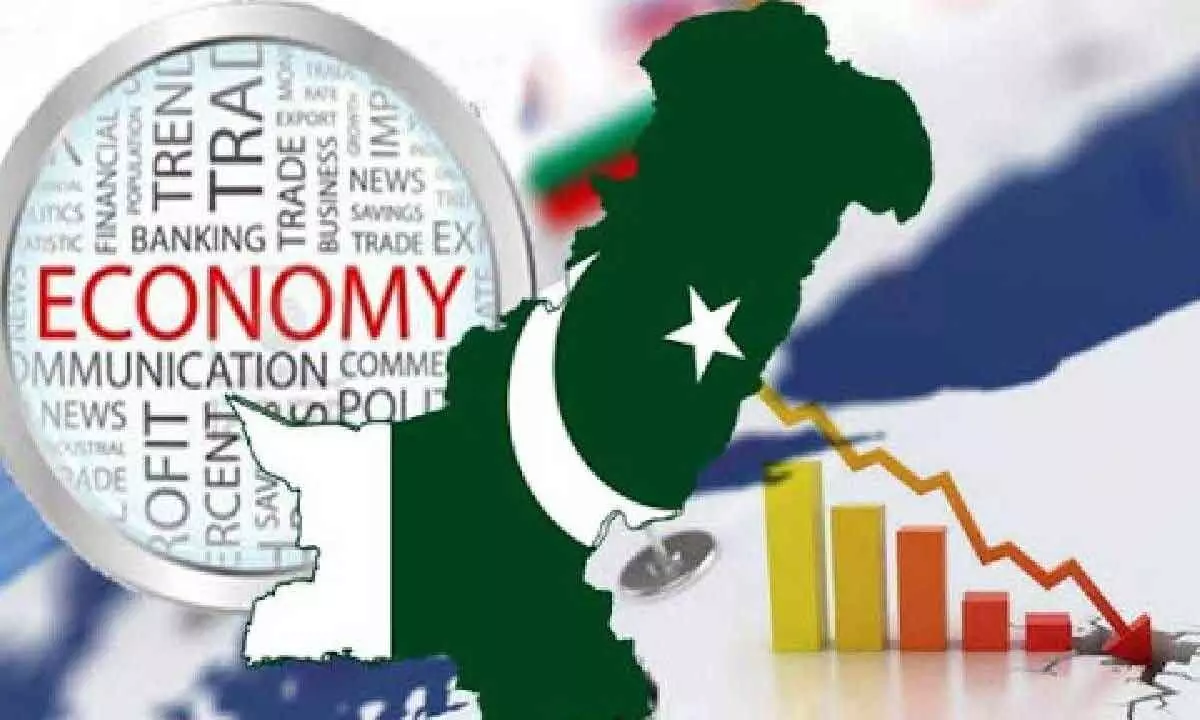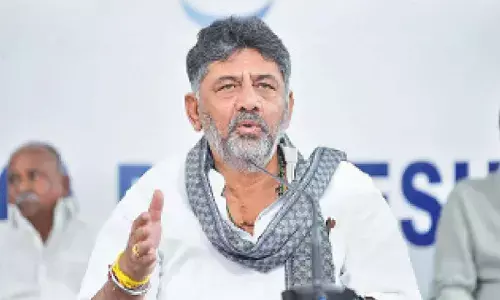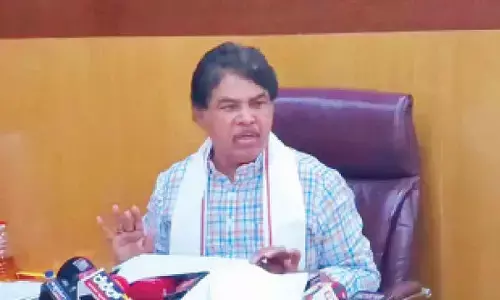Time running out for Pakistan

Pakistan's economy is now being run almost entirely by borrowed money. Even as last week Pakistan managed to secure fresh financial assistance of about $4 billion from Saudi Arabia and United Arab Emirates, which will help Islamabad avert a debt default, the money comes in the form of a rollover of an existing loan.
Pakistan's economy is now being run almost entirely by borrowed money. Even as last week Pakistan managed to secure fresh financial assistance of about $4 billion from Saudi Arabia and United Arab Emirates, which will help Islamabad avert a debt default, the money comes in the form of a rollover of an existing loan. The additional loans will only add to Pakistan's debt burden. The country has to make a repayment of $73 billion by 2025.
"It may have got a breather now but the country needs to revive the economy – or else it has to keep borrowing from one to repay another, that is the exact situation today," an analyst told India Narrative on condition of anonymity. As on January 6, its foreign exchange reserves stood at $4.34 billion – most of it has come as loans from other countries. The lifeline provided by Saudi Arabia and UAE will somewhat help in boosting the reserves while allowing Islamabad to resume talks with the International Monetary Fund.
A Brookings study has said that the country's economic crisis has been brewing even before the catastrophic floods. "An economic crisis comes around every few years in Pakistan, borne out of an economy that doesn't produce enough and spends too much, and is thus reliant on external debt. Every successive crisis is worse as the debt bill gets larger and payments become due," it said, adding that Islamabad may be forced to restructure its loans.
Sharif at the passing-out ceremony of probationary officers of the Pakistan Administrative Service (PAS) on Tuesday said that it is embarrassing to seek further loans. That apart, financial assistance will only add to Pakistan's debt burden as the country will also have to repay the loans at a specified time.
After severely criticising the International Monetary Fund (IMF) for setting stringent riders for the $7 billion loan package under the Extended Fund Facility (EFF) programme, Pakistan Finance Minister Ishaq Dar may have to eat humble pie. Reason? The immediate challenge for the Shehbaz Sharif government in the New Year will be to iron out issues with the IMF and ensure continuity of the loan package. For Pakistan with just $$5.821 billion in its foreign exchange kitty amid debt repayment obligations of more than $8 billion in the next three months, the risk of a default has multiplied. It will have to make a repayment of $1 billion to two foreign banks by this month.
Though reports suggest that the pending ninth review between IMF and the Pakistan government for the release of $1.18 billion will finally take place this month, the delay has led to concerns for Islamabad.
Notwithstanding the IMF's mandate for the loan programme which was revived in August, Dar went on to reduce prices of petroleum and diesel (Pakistani) by Rs 10 and Rs 7.5 respectively last month. As part of the loan programme, the IMF had mandated Pakistan to increase levy on fuel and eliminate subsidies.
An analyst with a ratings agency told India Narrative that "time is running out for Islamabad." "After the current finance minister's U-turn on key economic policies which included elimination of subsidies, the uncertainties have risen. It is like the devil and the deep sea you know you urgently need the IMF assistance but at the same time you are trying to play to the gallery," he said, adding that the policymakers are "well aware" of the problems and the solutions. "For Pakistan, the problem is the unwillingness to resolve the pressing issues. They instead focus on non-issues like Kashmir," he said. "Will Kashmir solve its debt problems? Get real, focus on real issues?" he asked.
Recently, raising the Kashmir issue at the UN Security Council Open Debate, Pakistan's Foreign Minister Bilawal Bhutto Zardari attacked Prime Minister Narendra Modi. After External Affairs Minister (EAM) S Jaishankar noted that cross border terrorism should not be justified adding that Pakistan even hosted Al Qaeda chief Osama Bin Laden, Bhutto lashed out. "I want to tell India that Osama bin Laden is dead, but the butcher of Gujarat lives and he is the Prime Minister of India," he said. While hitting back, India said that the comments were a new low, even for Pakistan.








